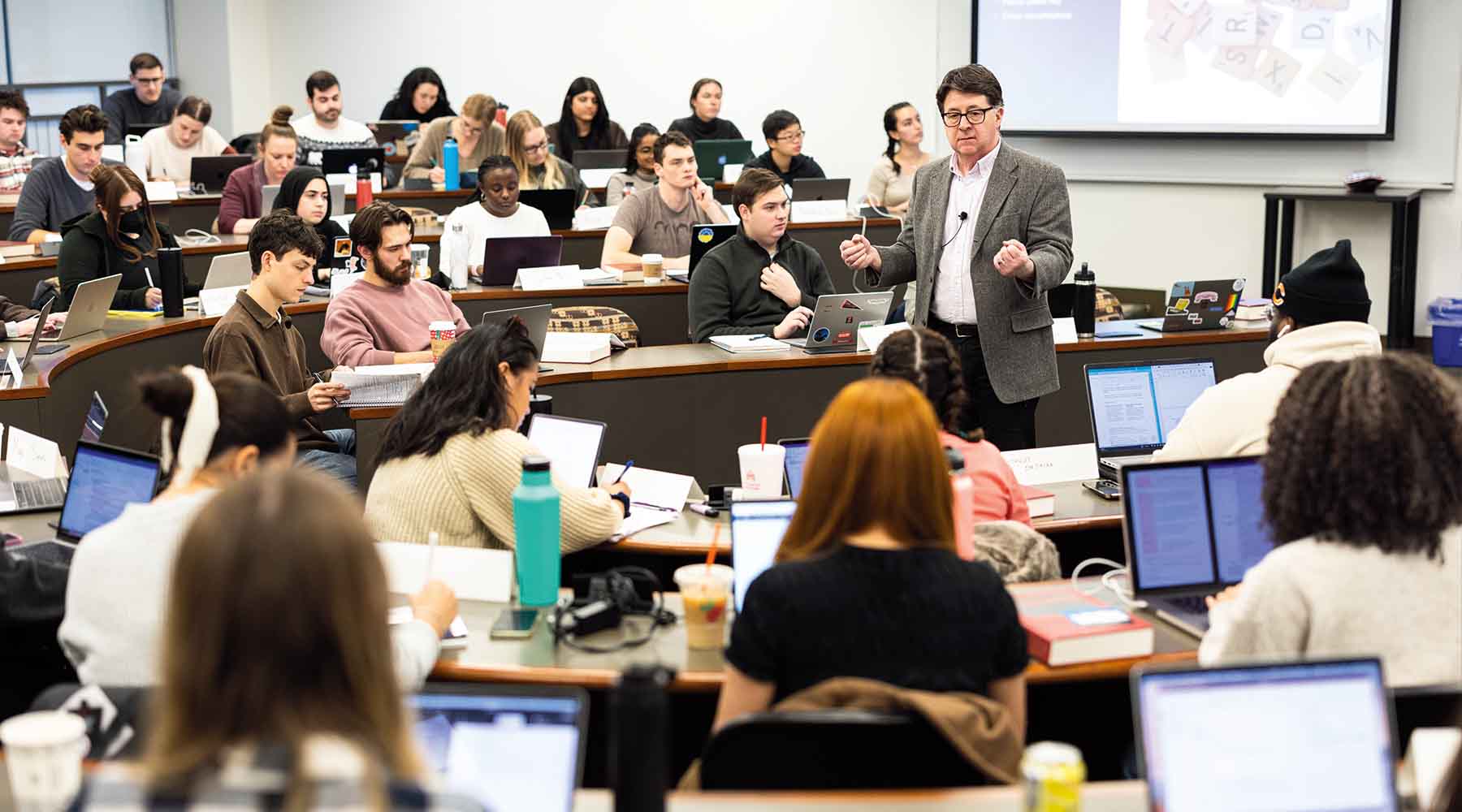Pioneering course
Professional Identity Formation class helps first-year students better understand their clients, themselves, and systems of the law
Who are you? How can you serve your community? Why are you coming to law school? What kind of lawyer do you want to be? These questions, rooted in the Jesuit tradition of nonjudgmental self-reflection, have guided Loyola University Chicago’s School of Law students in their Professional Identity Formation (PIF) courses since 2018.
In 2022, when the American Bar Association (ABA) announced it would require all law students to take a professional identity course, Loyola was already years ahead of the curve. For the last five years, Loyola’s School of Law has required all 1L students to take this anti-racism, intersectionality, and implicit bias course to help them better understand their clients, themselves, and the systems of the law.






